Upstate's Muslim community remembers Palestinian girl who learned to walk in Greenville
Raghad Al-Jabri was seven years old when she first learned to walk.
She was born with legs that could not support her. An amputation surgery and finding the right prosthetics to hold her upright could help her walk. But those facilities were rare, if not non-existent in Gaza’s embattled Khan Younis refugee camp.
In 2018, help came from across the seas. A group of volunteers, doctors and close-knit Muslim families in South Carolina’s Upstate banded together. Raghad’s dream became their own.
Doctors at Greenville’s Shriners Hospital took on Raghad’s medical case. Volunteers at the Palestine Children’s Relief Fund helped the then 7-year-old and her mother find a place to stay at the Ronald McDonald House. They became translators and interpreters as they helped get her to her appointments.
Nurses cheered her on as she held onto gait training bars. Physical therapy was a long journey and she had begun to understand the weight, of her new legs. Deep breath. Push.
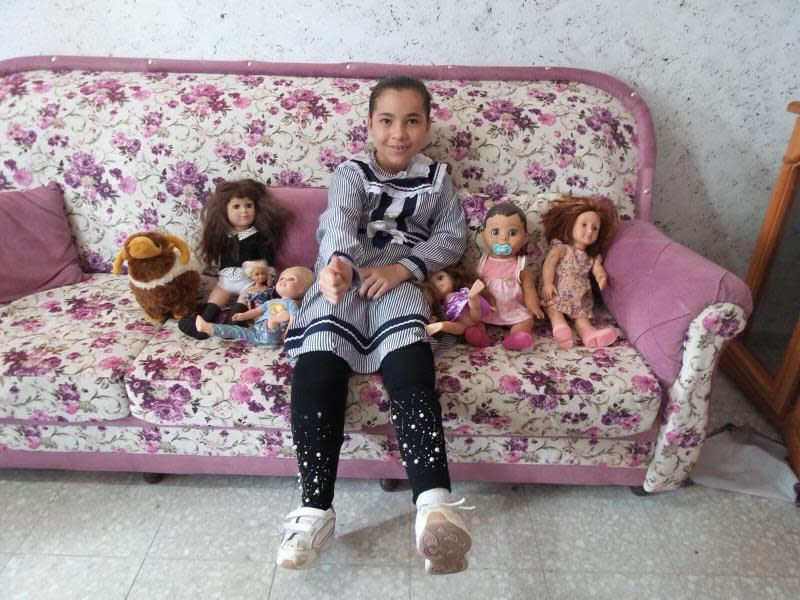
Then there it was. Her first step.
Fareeha Qazi, a longtime fixture in Upstate’s Muslim community and one of the volunteers, remembered Raghad's curly hair—strewn all over her face as she played basketball. Other families that met her said Raghad’s smiles grew wider. Their hearts brimmed with pride as they considered how they’d all come together as a community.
Ultimately, Raghad went back home. She ran with her siblings, became more social and took on another dream: going to school.
But five years later her dreams were cut short.
Israeli airstrike kills teen, 5 siblings and mother
Last month, the teenager died when an Israeli airstrike hit the building her family was huddling in, en route to Rafah in search of a safe harbor. She did not die alone. Her five siblings and her mother were also killed, leaving behind only her father.
The news came as a blow to the members of the Upstate’s Muslim community. They had been praying for the safety of several Palestinian family members and friends in the Gaza Strip and West Bank, fervently checking for updates on Facebook. Now, another one of theirs had been claimed.
There seemed to be no end to the violence, Qazi said, adding that children like Raghad, who made up nearly half of the population in Gaza, represented a big group of the casualties. UNICEF Deputy Executive Director Ted Chaiban has referred to the current crisis as a "war on children," as per a Jan. 18 statement.
It jarred 18-year-old Fatemah Abushanab, who was only a couple of years older than Raghad and had watched Raghad with diasporic fascination. Abushanab was Palestinian, but she had never known what it was like to walk the streets of Palestine.
Meanwhile, there was another facet of the violence Abushanab said she was grappling with: America's role in world politics.
Following years of blockades around Gaza and the West Bank, tensions between Israelis and Palestinians crested a new flashpoint on Oct. 7, 2023, when Hamas, a militant group located primarily in Gaza, attacked military bases and border towns in Israel. In return, the Israeli government retaliated with airstrikes to weed out militancy.
The retaliation has continued for the last three months and rolled into the new year. Groups associated with the United Nations have been pushing for a ceasefire citing a debilitating public health crisis in the Gaza Strip. Recently, South Africa took Israel to the International Court of Justice and accused Israel of committing genocide against the Palestinians. The U.S. has remained a consistent partner to Israel. President Joe Biden used executive powers to provide military aid to Israel and has conducted airstrikes in the Red Sea against the Houthis, a Yemen-based militant group that has vowed to disrupt commerce associated with Israel, the U.S. and the U.K. until a ceasefire is established.
'(Raghad) was able to come here and have this life-changing surgery'
Locally, Palestinian-American groups in the Upstate have hosted events and rallies to implore the local community to expand their lens beyond the events of Oct. 7 and make room for history from the perspective of Palestinians who were displaced after the state of Israel was created. Until then, the specter of continual violence continues to gnaw at them.
“Knowing that (Raghad) was able to come here and have this life-changing surgery— it really hits you,” Abushanab said. “The country that made her life-changing surgery possible is the same country that funded her murder. So everything has a different look now.”
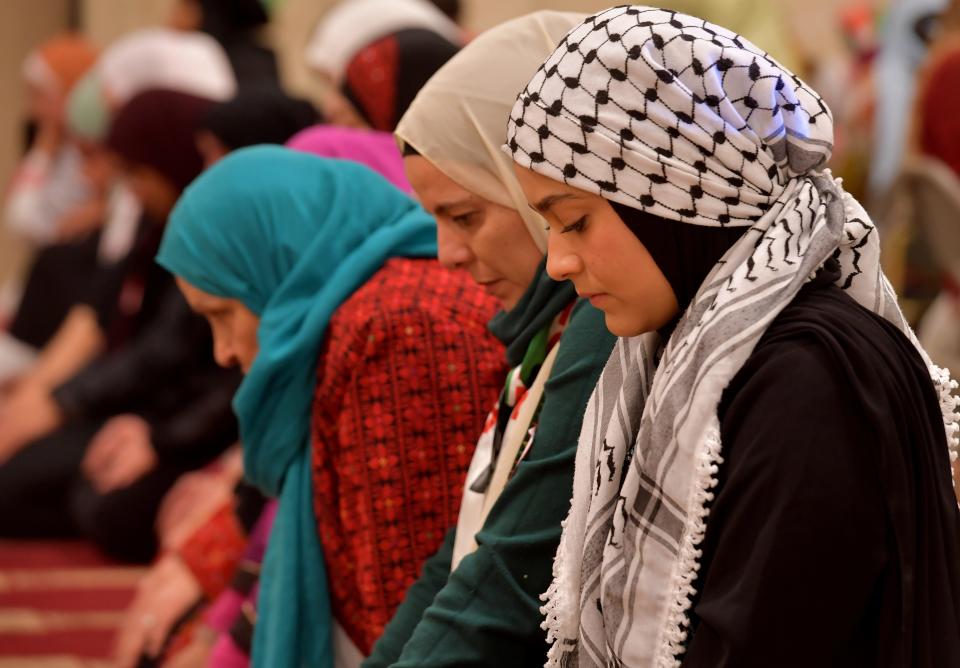
'She was sort of a reflection of what I could have been'
In 2018, Abushanab stood outside the Greenville-Spartanburg International Airport waiting for Raghad's arrival. There were close to 20 community members and volunteers with her, prepared to greet the seven-year-old and her mother with balloons and signs.
She had always yearned to feel closer to her heritage. Though she was Palestinian and had a lot of Palestinian friends, none of them were born in Palestine. They either grew up in the U.S. or other countries, their families had sought refuge in.
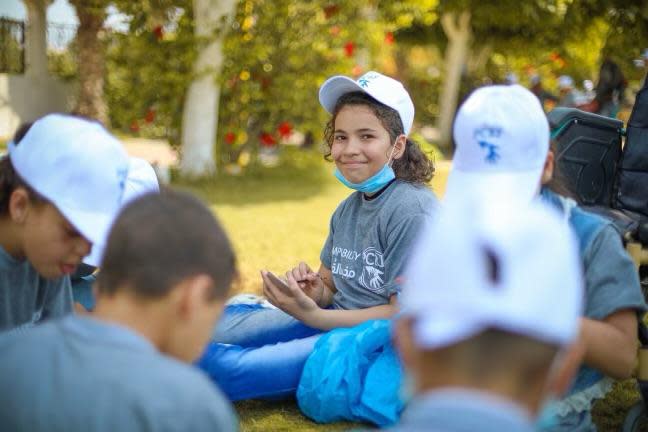
Abushanab was born in Amman, Jordan, and her family later moved to the U.S. "I remember feeling a little envious of the fact that (Raghad) knows what Palestine feels like," she said.
Like other Palestinian Americans, Abushanab had heard stories of olive trees. Grandma's tales. Lores from the yesteryear, interspersed with accounts of military checkpoints, hunger and bombings. "Every Palestinian knows the price that you have to pay of being Palestinian," Abushanab said.
Still, she had searched for home for so long. Through Raghad, home had come to her. The 18-year-old couldn't help but put herself in Raghad's shoes. They were two Palestinian girls with two different fates.
'(Raghad) seemed to come from a very traumatic situation'
Munawar remembered the sadness in Raghad's vacant gaze when she first met the then seven-year-old. "She did not seem too happy to be here. She seemed to come from a very traumatic situation and she barely smiled," Qazi said.
Long before the Oct. 7 conflagration, United Nations groups like UNICEF had presented research that showed blockades had led to destabilizing conditions. Seventy-eight percent of drinking water in Gaza was considered unfit for consumption in 2022 and 62% of the population in Gaza needed food assistance.
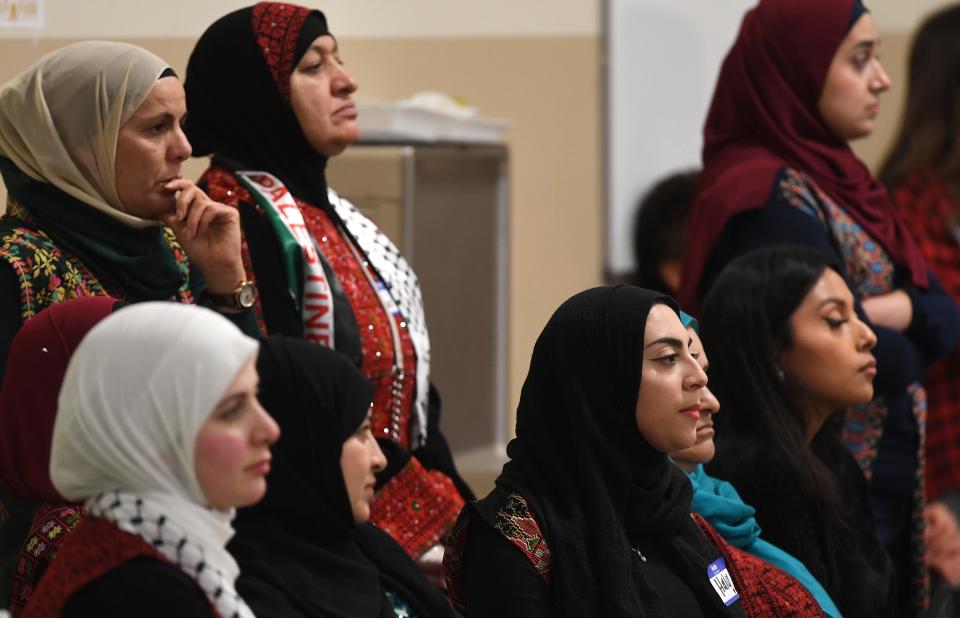
Qazi hoped Raghad's time in the U.S. would inspire hope.
And things did change after her surgery, Qazi said. Raghad began coming to the Upstate Islamic Center more often. Community members brought her toys and began encouraging their kids to talk to her. During her time in South Carolina, Raghad and her mother also began to learn English.
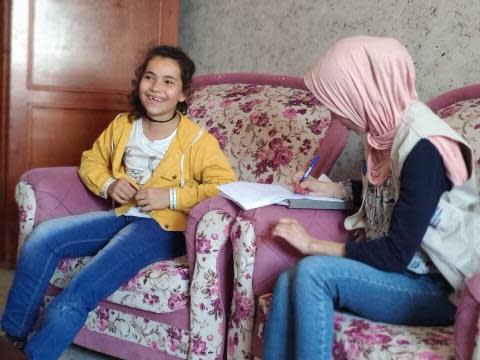
It took some time, Qazi said, but Raghad slowly opened up. "She was so much better when she left," Qazi said.
'Raghad was martyred'
Abushanab heard of Raghad's passing when she came upon her mother in the living room. She wasn't surprised to see her mother cry. Tears had become common in her household, she said.
But her mother sat on the couch, devastated.
"What's wrong?" Abushanab asked.
"Raghad was martyred," her mother responded, adding that a Facebook post in Arabic said most of Raghad's family perished in a strike.
It took Abushanab a second to place the name. It had been over five years, after all. But she had only known one Raghad. Her mother would later tell her about Raghad's siblings, and that's when the news came crashing down on her. How would she feel if her entire family perished in similar circumstances? She had already known loss.
The year Raghad came to South Carolina was also the year Abushanab lost her older brother. It was sudden. He was 32 years old and died of a heart attack. "To this day, (her brother's absence) still hits me," she said. "I can't imagine losing all my siblings in my family. I would just really be like—what do I do with myself right now?"
A night of remembrance
On. Dec. 16, 2023, Muslim-American families came together to host a cultural night.
A long table lined with Zaatar bread, hummus, tabbouleh, and pita bread, among other delicacies, doused the Upstate Islamic Center in aromas. Qazi was responsible for the food. She and her fellow organizers had spent weeks planning Palestinian delicacies. Another table offered dates and henna tattoos.
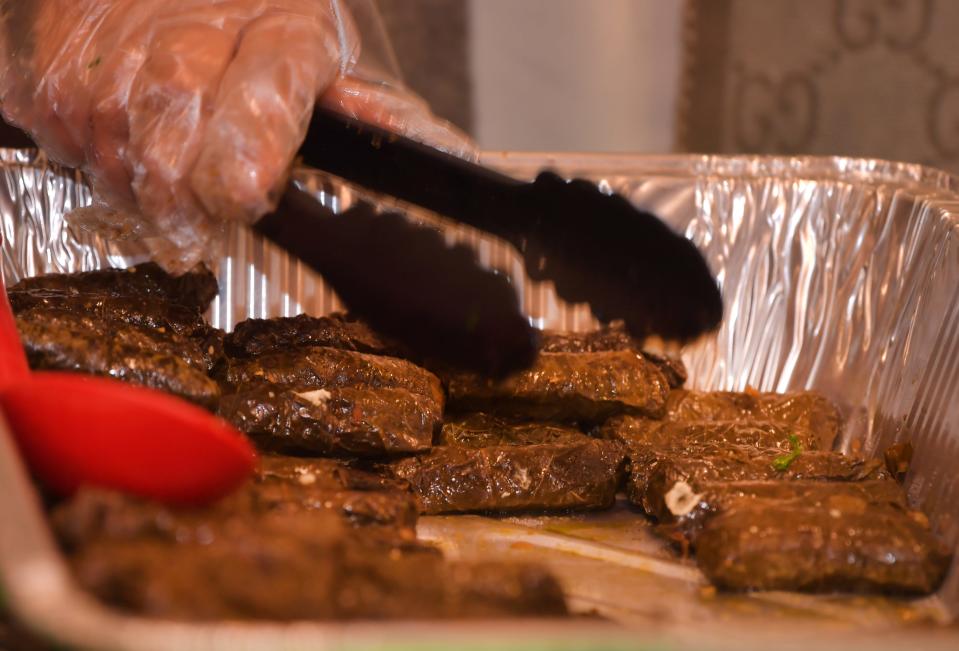
"We wanted to invite community members to experience Palestinian hospitality," Noura Abualeinan, founder of Upstate Voices for Palestine, said.
Group discussions between Palestinian and Jewish community members about ceasefires, what it was like to be a Palestinian and humanitarian aid were planned for the night. But before that, Qazi took the stage.
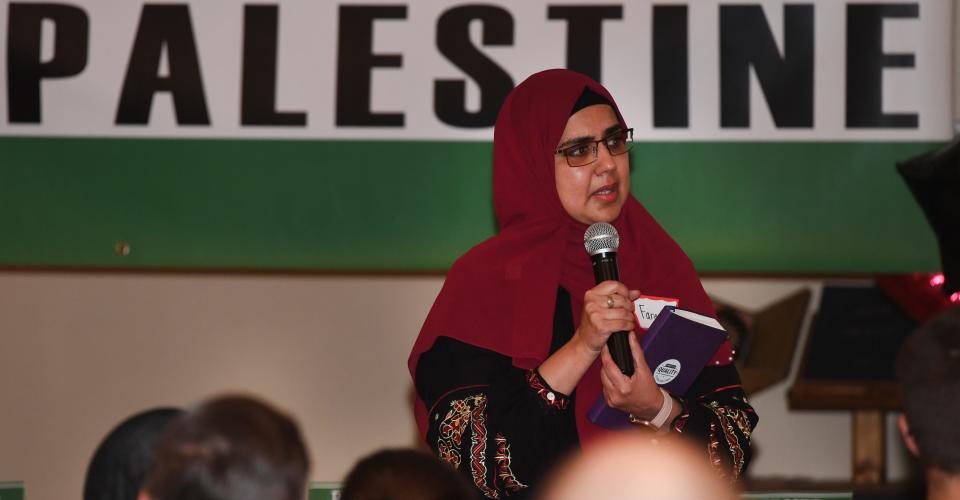
She stood in the middle of the hall with a paper in her hand. A projector screen behind showed pictures of Raghad from her time in Greenville. It had been nearly a week since she'd learned of Raghad's passing.
"(Raghad) used to come from the same door that you all walked in today," Qazi said. "She used to come to our center in her wheelchair with her mom.”
News stops feeling like news, especially once it touches someone they knew. "(Raghad and her mother) were so full of life," Qazi said. "They found hope out of hopelessness. They found hope in America and they went back with that hope to start a normal life, and then all of that was taken away."
Abushanab, on the other hand, is trying to come to terms with loss. To her, death can also be freeing. "You sort of feel glad for them because the living situations that are now with the war is nothing that anybody wants to go through," she said. "People say that like death is like you're freed. Freed from the hunger, from the medicine shortage, the trauma, the cold."
Devyani Chhetri covers SC Politics for the Greenville News. You can reach her at dchhetri@gannett.com or @ChhetriDevyani
This article originally appeared on Greenville News: Muslim community remembers Palestinian girl who came to SC for surgery

